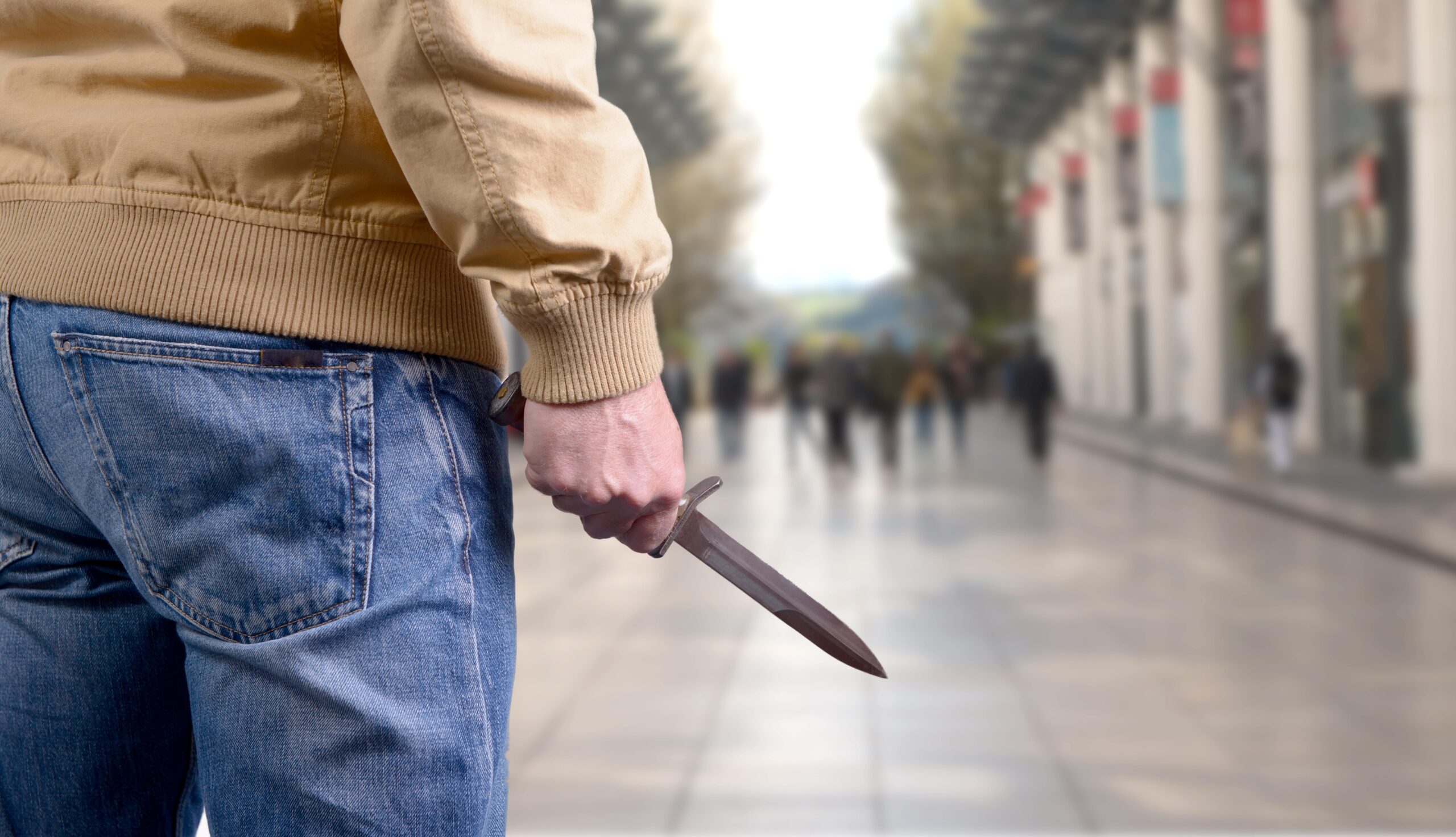Share This Article
The New South Wales Government has doubled the penalties for possession or wielding of a knife in a public place, in response to serious knife-related incidents in 2022 and early 2023.
When introducing the act, the Attorney General, Michael Daley said: “the Government is acting to address understandable community concern given the very high-profile tragic events involving knives that we have seen in New South Wales over the past year.
“The recent incidents of knife crime have been distressing and I can only imagine how difficult it has been for the victims and their loved ones.”
He commented that the reforms sought to address the high rates of recidivism for people convicted of knife possession, and recognise the significant risk posed by knives in public places.
The reforms now mean that the maximum term of imprisonment is increased from two years to four years. The maximum fines have increased from $2,200 for possession to $4,400 as well as from $5,500 for wielding a knife to $11,000.
Daley said: “we want to ensure that people in the community are safe and feel safe.
“We believe we have struck the right balance with these reforms, sending an important message to people engaging in criminal behaviour of this kind but also not being overly punitive in its application.”
However, it has also been noted by advocates that the reform appears to be a ‘knee-jerk’ reaction, as when viewed in a wider context, knife crime is at a 20-year low.
In 2000 – 2010, there was an annual average of 1,292 knife assaults. However, in the five-year period to 2021, there was an average of 634 knife assaults, as reported by the NSW Bureau of Crime Statistics and Research.
The bill has been passed by both houses and will be introduced shortly.
The Criminal Legislation Amendment (Knife Crimes) Bill 2023 removes offences from the Summary Offences Act 1988 (NSW) and transfers them into the Crimes Act 1900 (NSW).
Section 93IB of the Crimes Act 1900 (NSW) will now prescribe that it is an offence to have custody a knife in a public place or a school.
The maximum penalty applicable is a $4,400 fine and/or 4 years imprisonment.
However, the Act provides that a defence is available where the defendant proves that they had a reasonable excuse.
A reasonable excuse will include where you have a knife as it is reasonably necessary for:
- lawful pursuit of your occupation, education, or training,
- the preparation or consumption of food or drink,
- participation in a lawful entertainment, recreation, or sport,
- the exhibition of knives for retail or other trade purposes,
- an organised exhibition by knife collectors,
- the wearing of an official uniform, or
- genuine religious purposes.
It will also include where having custody of the knife is reasonably necessary as it occurs during travel to or from or is incidental to one of the outlined activities.
It is not a reasonable excuse to have custody of a knife for self-defence or for the defence of another person.
Section 93IC of the Act outlines that it is an offence to use or carry a knife that is visible, if the use or carrying occurs in the presence of a person, and in a public place or a school.
It must also be proven that the action was done in a way that was likely to cause a reasonable person to reasonably fear for their safety.
This is a separate offence, in that it targets actions such as brandishing or using a knife, as opposed to mere possession in a public place.
It carries a maximum penalty of a $11,000 fine and/or 4 years imprisonment.
However, the defence of having a reasonable excuse remains available.
The offences will be classified as ‘table 1’ offences. This means that they will be dealt with in the Local Court, unless the prosecution or accused elects for the matter to be heard in the District Court.
In practice, this means that they will likely be dealt with summarily in the Local Court.
In the Local Court, the maximum penalty of imprisonment that can be imposed is limited to 2 years for a single offence. The maximum fines remain applicable for both offences.
Police officers will still be able to choose to issue a penalty infringement notice for a first offence for knife possession, instead of charging the person. If you pay a penalty infringement notice, this does not appear as a criminal conviction and means you do not need to attend court.









